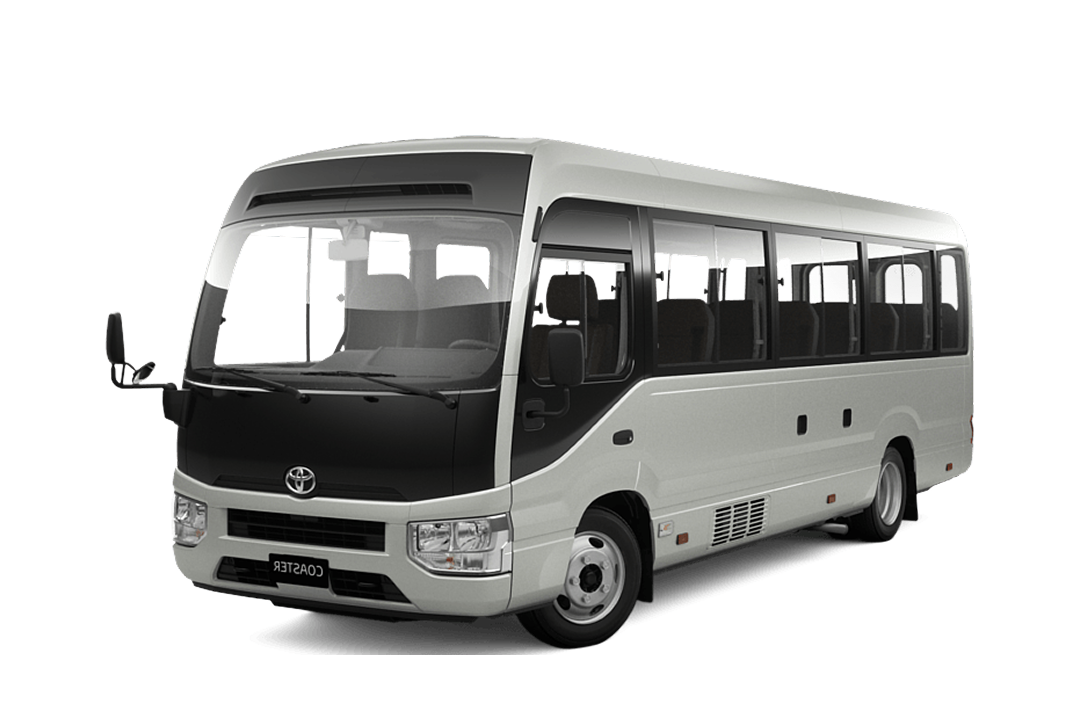For Muslim families embarking on the sacred journey of Umrah in Saudi Arabia, transportation is not merely a means of getting from one Place to another. It’s about ensuring the comfort and safety of your loved ones, especially when you’re traveling with children, elderly relatives, and bulky luggage. This is where the unique needs of Umrah pilgrims come into play, making the comfort, safety, and flexibility provided by a private Umrah taxi service indispensable. Official travel advisories underscore the importance of using licensed taxis and pre‑arranged ride‑hailing services, while cautioning against shared or unregistered vehicles.
These warnings remind travellers that not all transportation is created equal; taxis without meters can be unsafe or overpriced, and sharing a cab with strangers increases risk.
A private Umrah taxi service, designed specifically for families, bridges the safety and convenience gap and provides peace of mind. With their licensed drivers, well‑maintained vehicles, and door‑to‑door service, these services allow families to focus on their spiritual journey, rather than worrying about transportation logistics.
Whether traveling from Jeddah to Makkah or between hotels and the airport, companies like Ahram Travel provide private Umrah taxi for families with sedans, vans, SUVs, and mini‑buses. This article explains the benefits of private taxis, describes vehicle options, highlights safety measures, and compares them to public transport.
It also provides a comprehensive step‑by‑step guide to booking, answering common questions, and planning your pilgrimage more easily. From choosing the right vehicle to confirming your booking and meeting your driver, this guide ensures a smooth and hassle-free booking process.

Why private taxis matter for Umrah pilgrims with families
Performing Umrah involves moving between multiple holy sites, and travellers often spend long hours on the road. Families need space for suitcases, a stroller, and prayer mats; many travellers value privacy and flexibility.
Official health guidance for pilgrims notes that Hajj and Umrah are among the world’s largest annual gatherings, requiring pilgrims to walk long distances in hot weather. After the physically taxing rituals, families require reliable transport to rest and prepare for the next step.
Benefits of private taxis for Umrah pilgrims
- Privacy and comfort: Private taxis allow your family to use the vehicle exclusively. You aren’t sharing with strangers, reducing health risks, and eliminating personal space worries. You can adjust the air‑conditioning, choose your music, and stop as needed.
- Flexibility: Unlike scheduled buses, a private taxi works on your timetable. Whether your flight lands at midnight or you wish to visit a relative after prayers, the driver can accommodate detours and additional stops. This flexibility is beneficial when traveling with elderly relatives or children.
- Reduced stress: Navigating busy streets in unfamiliar cities like Jeddah, Makkah, or Madinah can be stressful. Private taxi drivers know the best routes and can drop you at entrances reserved for pilgrims. With pick‑up and drop‑off directly at your hotel, you avoid long walks in the heat.
- Safety: Reputable companies employ licensed drivers, ensure seat belts are available, and carry insurance. Travel advisories urge travellers to use pre‑arranged and licensed taxis or approved ride‑share services. Private taxi services meet these requirements, so families avoid unregistered taxis that may lack meters or seat belts.
Types of vehicles ideal for families
A reputable Umrah taxi service offers multiple vehicle categories to accommodate family sizes and budgets. Below are standard options.
Sedans (e.g., Toyota Camry)
Sedan transfers use comfortable 4‑door cars like the Toyota Camry. Ahram Travel’s Camry local transfer page explains that spacious Camry vehicles accommodate up to four passengers and three pieces of luggage.
Prices are reasonable; for example, a Camry ride from Jeddah Airport to your hotel starts at around 190 SAR. Sedans are ideal for small families wanting comfort and affordability. Families traveling directly to Makkah can also book the Camry Makkah transfer for a similar sedan service.

Vans (e.g., Hyundai Staria)
For larger families, vans like the Hyundai Staria provide 6–8 seats with ample legroom and luggage space. Vans typically feature sliding doors for easy entry, and air conditioning keeps passengers comfortable on long journeys between Makkah and Madinah.
Staria vans also have high ceilings, making them comfortable for elderly passengers who may find sedans cramped. Ahram Travel offers dedicated routes for van users, such as the Staria Makkah transfer for travel around Makkah and the Staria Madinah transfer for trips to and from Madinah.

SUVs (e.g., GMC or similar)
SUVs like the GMC Yukon or Suburban blend luxury and space. With seating for 6–7 passengers and generous luggage capacity, SUVs suit families wanting extra legroom or traveling with prams. Their higher ride height improves visibility and often includes leather interiors, climate control, and entertainment systems.
For a premium SUV experience during your Umrah trip, consider Ahram Travel’s GMC local transfer, which pairs luxury vehicles with professional chauffeurs.

Mini‑buses (Coaster)
When traveling with extended family or a large group, a Coaster mini‑bus or similar vehicle seats 18–22 people. These vehicles are popular among families traveling together during peak seasons. They include air conditioning, overhead luggage racks, and sometimes a microphone for group coordination. Mini‑buses allow everyone to stay together, making coordinating group prayer stops or meals easier.
Ahram Travel’s Coaster Makkah transfer caters to large families and groups requiring a private mini‑bus for journeys to and from the holy cities.

Comparison of vehicles for family travel
| Vehicle type | Seating capacity | Best for families who… |
| Sedan (Camry) | Up to 4 passengers + 3 luggage | I have a small family and light luggage; I want affordable private transport. |
| Van (Staria) | 6–8 passengers | Need more space for extra luggage or prefer sliding doors for easy entry. |
| SUV (GMC) | 6–7 passengers | Seek a blend of luxury and capacity; want high comfort. |
| Mini‑bus (Coaster) | 18–22 passengers | Travel with extended family or group; want everyone in one vehicle. |
Safety measures: licensed drivers and insurance
Safety is the top priority when choosing a private taxi for Umrah pilgrims. Families should verify that the operator meets the following standards.
Licensed drivers and regulated vehicles
Travel advisories from Australia’s Smartraveller urge travellers to only use licensed taxis or approved ride‑share services and to refuse offers from unregistered drivers. Drivers. The Canadian government advises using pre‑arranged and licensed taxis and avoiding shared or unregistered taxis.
U.S. authorities state that government employees may only ride with established taxi companies, such as Uber Black in Riyadh, and caution travelers to avoid sharing taxis with unknown passengers.
Reputable Umrah taxi providers follow these guidelines. Drivers carry professional licences, undergo background checks, and adhere to local transport regulations. Vehicles are inspected regularly, have functioning seat belts, and display appropriate registration stickers.
Families should verify the company’s licence number and look for a meter or a fixed‑price booking confirmation.
Insurance coverage
Licensed taxis carry insurance that covers passengers in case of accidents. Coverage usually includes third‑party liability and may provide compensation for medical expenses. Before booking, ask the operator about their insurance policy and verify that it includes passenger coverage. Avoid unregistered taxis, as they may lack proper insurance.
Child safety
If you travel with young children, request a child seat when booking. Many private taxi services provide infant or booster seats on request. Ensure the vehicle has seat belts in all rows and the driver is trained to secure child restraints properly.
Health precautions
Since Umrah attracts millions of pilgrims, travellers are exposed to crowds and illnesses. Health authorities advise pilgrims to stay hydrated, practice hand hygiene, and ensure vaccinations are current. A private taxi reduces exposure to crowds compared with public buses, helping families limit contact with strangers and maintain a sanitary environment.
How to book a private Umrah taxi
Booking can be done online through a company’s website or locally via your hotel or travel agent. Here are the steps to secure your ride.
- Choose a vehicle: Determine how many people and how much luggage you have. Small families may choose a Camry sedan, while larger groups may select a Staria or Coaster. Ahram Travel’s website lists vehicle categories, including Camry local transfer, Staria Makkah transfer, Staria Madinah transfer, GMC Jeddah transfer, and Coaster Makkah transfer.
- Check availability and price: For online bookings, select your route (e.g., Jeddah Airport to Makkah hotel). The Camry page lists key routes with prices: Jeddah Airport to hotel (190 SAR), Jeddah hotel to Makkah hotel (220 SAR), and Jeddah hotel to Madinah hotel (500 SAR). Prices are generally per vehicle, not per passenger.
- Provide passenger details: Enter the number of passengers, luggage, and any special requests (child seat, wheelchair access). Provide your flight number and arrival time if booking an airport pickup.
- Confirm payment method: Some companies allow online payment by card or bank transfer; others provide cash‑on‑arrival. Inquire about payment terms and possible deposits.
- Receive confirmation: Reputable companies send booking confirmations with driver contact details. Save the confirmation on your phone for reference. According to the U.S. travel advisory, travellers should arrange pickups by telephone or smartphone app to ensure they connect with the correct driver.
- Meet your driver: Contact the driver via WhatsApp or phone on arrival. Confirm the license plate number to avoid unregistered taxis.

Online vs. local booking
| Booking method | Advantages | Disadvantages |
| Online (via websites like Ahram Travel) | Convenient booking from home; fixed pricing visible; ability to choose vehicle type; instant confirmation. | Requires internet access; some sites may not accept international payment cards. |
| Local booking via hotel/travel agent | Personal assistance; potential language support; payment in local currency. | Prices may be higher due to commissions; availability is uncertain during peak season; and there is limited vehicle choice. |
Many families prefer online booking because they can compare vehicle options, read descriptions, and secure the ride before arrival. However, if you decide at the last minute, hotel concierge desks often have relationships with reputable taxi companies.
Comparing private taxis to public transport
Public transport in Saudi Arabia includes buses (e.g., SAPTCO intercity buses), trains (Saudi Railways), and local ride‑share apps. For families, especially those performing Umrah, private taxis offer advantages.
Convenience and comfort
Public buses and trains can be crowded, especially during the Umrah, when millions of pilgrims gather. Travel advisories warn that registered public taxis may be in poor condition, lack meters, a nd may not have seat belts. Private taxis allow families to travel comfortably with air conditioning and seat belts. Sedans like the Camry seat four passengers with luggage, while vans and SUVs can carry more people and belongings.
Flexibility
Buses and trains run on fixed schedules. If your flight arrives late or you want to visit multiple sites in one day, you may need to wait for the next bus or change lines. Private taxis operate 24/7 and adjust to your itinerary. You can plan side trips to mosques or rest stops without worrying about missing your ride.
Safety and security
Public transport may involve mixing with large crowds, increasing exposure to illness, and pickpocketing. Travel advisories caution against sharing taxis with unknown passengers and sitting in the front seat. In a private taxi, your family remains together, and the company vets drivers.
Cost considerations
While public transport is often cheaper per person, private taxis become cost‑effective when traveling in groups. For example, a Camry transfer for four passengers from Jeddah to Makkah costs about 220 SAR, divided among four, and is comparable to multiple bus tickets. Plus, you gain door‑to‑door service.
Summary table
| Feature | Private Umrah taxi | Public buses/trains |
| Privacy | Exclusive vehicle for your family. | None; you travel with strangers. |
| Flexibility | The scheduled vehicles are tailored to your itinerary; they stop on request. | Fixed schedules and routes; limited stops. |
| Comfort | Air‑conditioned cars; seat belts; luggage space. | Crowded; limited space; possible lack of seat belts. |
| Safety | Licensed drivers, insured vehicles. | Condition varies; warnings about unregistered taxis. |
| Cost | Higher per vehicle, but cost‑effective for groups. | Lower per person but less flexible. |
Why families love Ahram Travel’s private taxi service
Ahram Travel is a popular provider of reliable Umrah transport services in Saudi Arabia. Based on available information from their Camry page and general industry practices, here’s why families choose them:
- Affordable pricing: Transfers start at 190 SAR, offering value for small families.
- Comfortable rides: Sedans like Camry accommodate up to four passengers and offer spacious seating and air conditioning.
- Professional drivers: The company emphasises experienced drivers who prioritise safety and punctuality.
- 24/7 availability: You can book transfers at any time of day or night.
- Simple booking: Ahram Travel allows fast and easy online bookings. Their services include numerous routes such as Jeddah to Makkah, Madinah, and Taif, making planning straightforward.

Conclusion
Choosing a private Umrah taxi is one of the family’s most important decisions when planning their pilgrimage. While public buses and trains serve basic transportation needs, they cannot match private taxis’ safety, flexibility, and comfort.
Official travel advisories from Australia, Canada, and the United States consistently warn travellers to use licensed, pre‑arranged taxis and avoid shared or unregistered vehicles. Private taxi services comply with these rules, offering reliable Umrah transport that ensures your family’s security.
Every family can find the perfect fit with vehicle options ranging from sedans like the Toyota Camry (4 seats and 3 luggage) to spacious vans, luxurious SUVs, and large mini‑buses.
Booking is straightforward through websites such as Ahram Travel, which provides clear routes and pricing, for example, 190 SAR for a Jeddah airport transfer and 220 SAR for Jeddah to Makkah. Services operate 24/7, use professional drivers, and offer simple online booking.
Families can concentrate on worship and bonding rather than transportation hurdles by investing in a private Umrah taxi. Whether you’re traveling with a small family or a large group, choose a reputable provider, check that the driver is licensed and insured, and enjoy a stress‑free journey between Saudi Arabia’s holy sites.
Your pilgrimage deserves comfort, safety, and peace of mind. Book your private taxi today and make your Umrah experience memorable.
Frequently asked questions (FAQs)
1. How long before I see a driver when I book?
Most private taxi services confirm your booking within minutes and assign a driver. You’ll receive the driver’s name, phone number, and vehicle details when booking online. For airport pickups, expect the driver to wait with a sign or contact you via WhatsApp upon arrival.
2. Can I use this service daily or multiple times during my stay?
Yes. Many families use private taxis daily between their hotel and the mosque or to visit historic sites. You can book one‑off rides or schedule daily transfers. For multiple trips, consider packages offered by the company.
3. Is it safe for children and elderly passengers?
Licensed taxi services prioritise safety. They provide seat belts in all rows and can supply child seats on request. Vans and SUVs offer easier entry for elderly passengers. Avoid unregistered taxis and ensure the driver has a licence, as travel advisories recommend.
4. How much luggage can we bring?
Sedans like the Camry hold three medium suitcases and several carry‑on bags. Vans and SUVs accommodate more luggage, with space for strollers or prayer mats. When booking, specify the number of bags to ensure the vehicle is adequate.
5. What if I need to cancel or change my booking?
Check the company’s cancellation policy when booking. Many services allow free cancellation up to 24 hours before departure. Last‑minute cancellations may incur a fee. Contact the driver or support team to adjust the pickup time if your flight is delayed.
6. Can I combine Umrah taxi services with other tours?
Yes. Some providers offer combined packages, including city tours of Jeddah, visits to historical sites, or day trips to Taif. You can also request customised itineraries and stops along the route.
7. Is there a difference between day and night rates?
Rates are sometimes higher late at night due to limited driver availability. However, packages often have flat rates for airport transfers. Check the price list and confirm whether early‑morning or late‑night pickups carry extra charges.